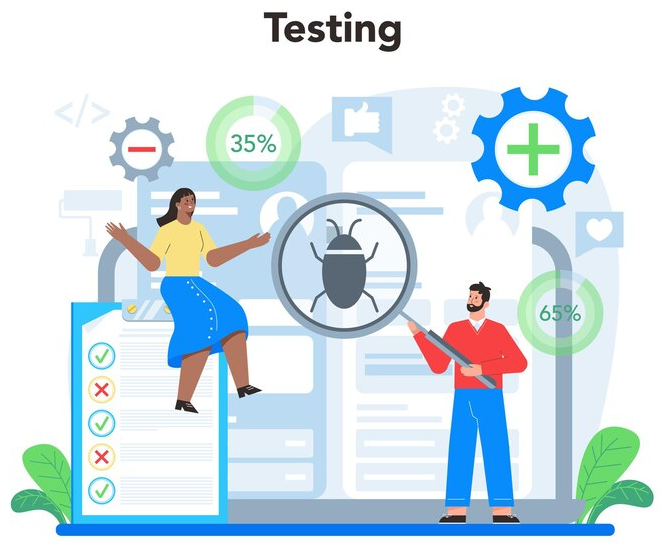1. Trust and Integrity: The Pillars of QA
In Quality Assurance (QA), trust is super important. It's like when you use an app or a website, you trust it to work well and keep your info safe. Making sure the product works reliably and safely isn't just a tech job; it's also about doing what's right and fair.
So, think of it as building trust among everyone involved - the people using the software, the ones developing it, and the whole software community. When QA practices are ethical, meaning they follow the rules and do things right, they make sure the software not only runs smoothly but does so in an honest and dependable way. This builds a strong bond of trust between the folks creating the software, testing it, and the people using it. It's like everyone is on the same page, knowing they can rely on each other to make and use software that's trustworthy.
2. User-Centric Testing: Prioritizing Ethical User Experiences
In the world of making sure software is good and safe to use (we call it QA), being ethical means more than just following technical rules. It's like being a good friend to the people using the software. Imagine you have a favorite game on your phone, and you want it to be fun and fair for everyone.

So, being ethical in QA is like making sure that game isn't just fun but also easy to play for everyone. It's checking if your friends who use wheelchairs can play, or if your friends who speak different languages can understand the game. Ethical QA is like being a superhero for everyone who uses the software, making sure it treats them nicely and works well for whatever they need. It's about making sure everyone feels welcome and happy when they use the software.
3. Data Privacy and Security: Ethical Considerations
Being QA, handling private information is a big deal. It's like being a secret keeper, making sure nobody gets to see things they shouldn't. Being ethical here means not only finding problems but also strongly saying, "Hey, let's make sure this info stays safe!"
So, imagine being in charge of a treasure chest. Being ethical is like putting extra locks on it and making sure no one can sneak in. QA professionals are like guardians of this treasure, making sure it stays safe and secure. They're like the superheroes making sure your secrets are always protected.
4. Transparency in Testing: Building Ethical Relationships
In the testing job, being clear and open about what you're doing is super important. It's like playing fair and square. Being ethical means everyone knows what's happening, like telling your friends the rules of a game before you play.
So, in the testing team, being transparent is like having clear rules that everyone understands. It's like saying, "Here's what we're doing, how it's going, and any problems we find." This openness builds trust, like when you play a game and know everyone is following the same rules. Being clear and honest in testing is like a secret ingredient that makes teamwork strong and helps everyone work together nicely.
5. Responsibility in Automation: The Ethical Use of Technology
In the world of testing software, where things are getting automated, it's important for the testing team to do it in a good and fair way. Being ethical here means making sure these robot processes follow the rules, treat everyone fairly, and don't accidentally cause problems.
So, it's like having a robot helper, but you want to be sure it's doing its job in the right way. Being ethical in this situation means checking that the robot isn't treating some things better than others and making sure it doesn't accidentally mess things up. It's like being a good boss to the robots, making sure they work responsibly and don't cause any trouble.
6. Navigating Ethical Dilemmas: A Moral Compass in QA Decisions
In the job of testing software, sometimes the testers face tough choices, like when they need to finish quickly but still check everything well. Having a moral compass, which is like a guide to doing what's right, helps them make good decisions. It means they choose things that make the software good, make users happy, and follow the rules, even when it's hard. It's like having a wise friend to help them choose the best path, even when things are tricky.
In the world of making sure software is good and safe (that's Quality Assurance), being ethical is like the heartbeat, the thing that keeps everything going. It's not just about fixing problems in the software; it's about doing things in a way that people can trust, being clear about what's happening, and taking responsibility for it all.
So, when the people doing Quality Assurance (QA) make sure to be ethical, they're like the heroes making software that not only works well but also treats users and their information with respect. It's like they're using a moral compass, a guide that helps them do what's right for everyone using the software.
